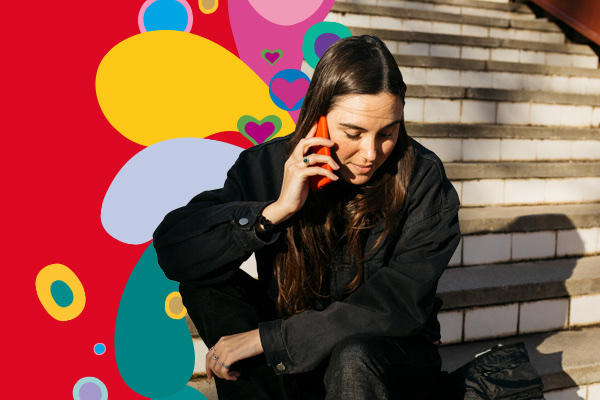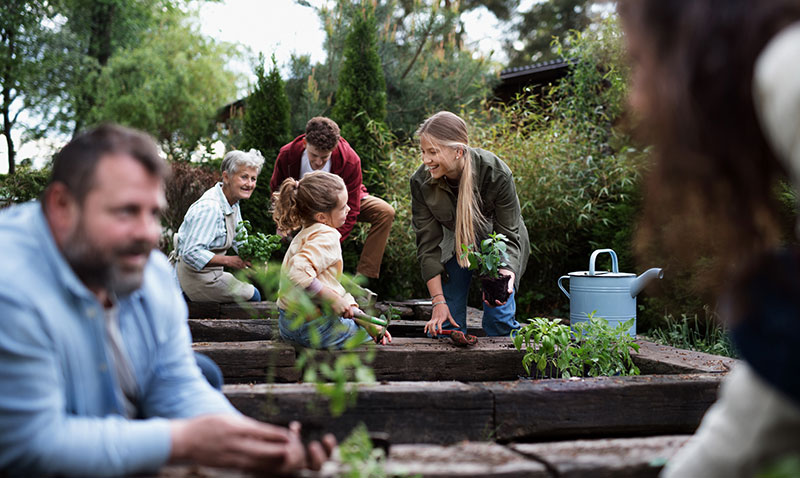In my early 30s I lived alone in an apartment in the inner suburbs of Melbourne for many years. After many fun (and some very questionable) share house experiences, I realised that I would do almost anything to have my own nice mugs lined up in the cupboard, and to be able to sleep at night knowing that when I entered the kitchen the next morning, it would be exactly as I left it. So, I took the plunge and moved out into my own small apartment.
After a while, as I settled into life on my own, I began to cherish the moments of quiet: the opportunity to read my book uninterrupted, to play music that no one could hear, to cook nourishing meals and eat them mindfully with no distractions. It felt wonderful to be in my own presence.
After a time however, I noticed other feelings starting to surface. As an extrovert who loves the energy that being around like-hearted people brings, I yearned to feel seen. I realised that I could go out and about in my local area, go to the neighbourhood I, go to the supermarket, go for a walk and yet not actually really ever connect with anyone. When I got home, even though I had been surrounded by people, I still felt alone. I realised I was lonely.
If you can, like me, remember or relate to significant periods of loneliness in your life, then you are — ironically — not alone. 1 in 3 Australians recently reported experiencing a high level of loneliness, according to research released by Medibank last year.
It’s important to note the difference between loneliness and social isolation. One can be socially isolated and not lonely; for example, if you enjoy your own company and feel nourished by it. Alternatively, you can be surrounded by people — even be in a romantic relationship — and yet still feel quite alone.
The importance of community for mental health
One of the first things I learnt during my clinical psychology training is the protective nature of social relationships and social support. If someone presents with depression, one of the first things you might do is establish what kind of support network this client has, because reconnecting them to these people is an important step in the healing process.
There are different types of social support, and all are valid and useful in protecting someone from mental health issues and loneliness. Family and close relationships are a key source of social engagement, as is the broader notion of community-based social ties.
In Western culture we pay a lot of attention to the importance of our close relationships and friendships, but less attention to the importance of feeling integrated into our local community, which begs the question: could our happiness levels be taking a hit because of this?

24/7 Medibank Mental Health Support
Medibank health insurance members can chat to a mental health professional about how they feel and ask questions about a range of mental health concerns for themselves or a loved one and get guidance on what they can do next. Chat online or call 1800 644 325 anytime of the day or night, 7 days a week at no extra cost.*
* Some referred services may involve out of pocket costs and waiting periods may apply.
Five ways to find your community
For many people, strengthening community comes naturally, through work or their children’s school, or specific hobbies they might have done for a long time. For those who are retired, or without kids, or who have solitary hobbies, it can be hard to know where to begin.
In these cases, there are a few different ways one might start to build community. I find the best ones help me achieve my personal wellbeing and growth goals as well as build my social network.
Here are my top five ways to get connected.
1. Join an existing community
Join a community that already exists, one that revolves around being active. If you are into sport, then your local parkrun is an amazingly welcoming community, or I’ve always found many yoga or meditation studios are set up to encourage connection.
In other words: find somewhere you can have a cup of tea and a chat with others before or after class!
2. Invest in relationships with your neighbours
Get to know your neighbours by taking part in a local community cleanup or neighbourhood event. If there isn’t much going on in your area, start your own neighbourhood meetup. A simple invite to a street morning tea at the local cafe dropped in a few letterboxes might be a nice place to start. You never know when it might come in handy to have a better relationship with your neighbours!
3. Join a community garden
Join a community garden or participate in a local gardening group. You’ll get the double benefit that comes from spending time in nature and connecting with others who share a love for gardening.
You can read about how to join or start a community garden on page 16 of this magazine.
4. Take a fun class or course
Enrolling in a group class can be an effective way to meet new people with similar interests and learn new skills. It can also provide a sense of accomplishment and personal growth.
5. Explore your local area
Get out of the house and enjoy the amazing array of free cultural events, arts shows and music events around your region. Challenge yourself to explore new venues and areas you haven’t been to before.
If you don’t want to fly solo, you can use apps like Nextdoor or Meetup to find and connect with people who share similar interests or live in the same area to go and do things with.
Finding the right balance
We are social creatures, or as the scientists like to put it, we are ‘bonding mammals’. In the age of smartphones, it is all too easy to accidentally prioritise connections to strangers on social media over the true sense of belonging that comes from showing up for our local, real community. This can lead to a sense of emptiness and can deprive us of the meaning that comes from those real (and sometimes awkward!) connections.
There is no doubt many of us could benefit from prioritising community and connection a little bit higher on our list, present company included. You even might like to check in with yourself now by asking the question, “How many eyes have I looked into today?” If the answer is not many, then go and find some!
Fast forward to today, and I still have my mugs sitting neatly in the cupboard. Luckily, my partner is pretty good at keeping the kitchen clean and just as we left it.
These days though, those mugs are less a beacon of independence and more a reminder of the joy that comes from sharing a cup of tea with others.
As it turns out, I probably need other people more than I thought.
.jpg)
Mental health is complex.
Getting support doesn’t have to be.
Our Mental Health Hub has resources, tools and support services to help you on your journey to better mental health.

